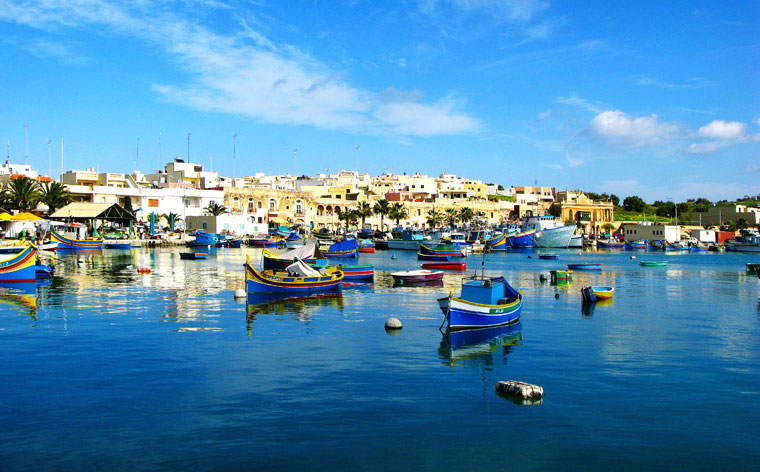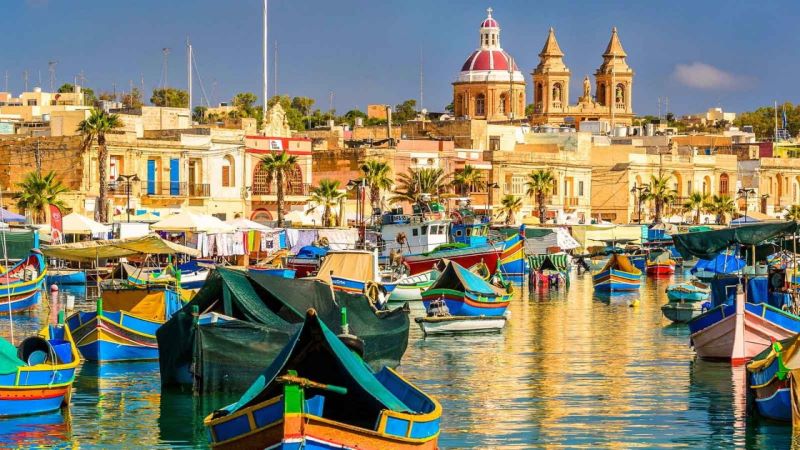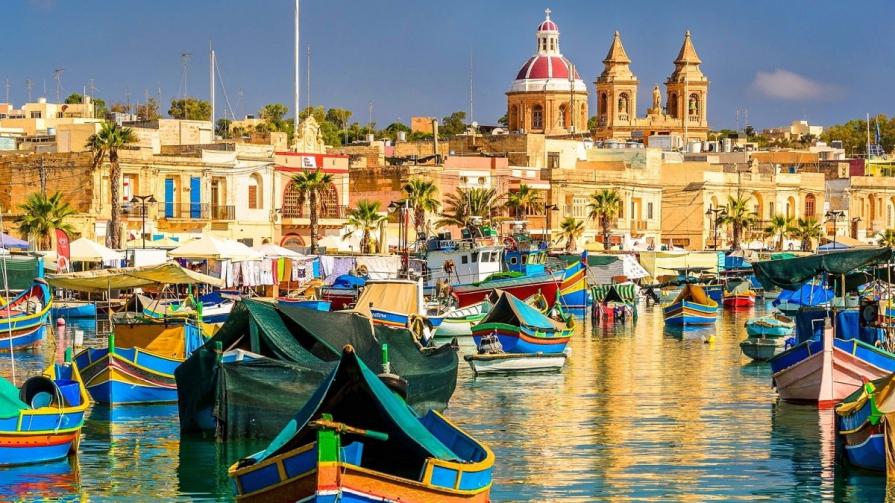Nestled in the heart of the Mediterranean, Malta is a picturesque archipelago that offers endless opportunities for adventure and relaxation. With its stunning beaches, rich history, and vibrant culture, it’s no surprise that Malta has become a popular destination for tourists and expats alike. But for those seeking a more permanent residence, renting a property in Malta can be a daunting task.
That’s why we’ve put together the ultimate guide to renting in Malta, to help you navigate the process with ease and confidence.
This guide will cover everything from the initial search for a property to signing the lease agreement and settling into your new home. We’ll explore the different types of properties available in Malta, as well as the financial considerations that come with renting.
Whether you’re looking for a cozy studio apartment in Valletta or a spacious villa in St. Julians, this guide has got you covered. So sit back, relax, and let us guide you through the ins and outs of renting in Malta.
Key Takeaways
- When renting a property in Malta, it is important to set a budget range, research the area, inspect the property thoroughly, and read the rental agreement in detail.
- There are different types of rental properties available in Malta, such as apartments, penthouses, and maisonettes, and it is important to consider factors like the number of bedrooms, outdoor space, and air-conditioning.
- The average rent prices vary depending on the location, with areas like Sliema and St. Julians being more expensive than Mellieha, St. Pauls Bay, and Buggiba.
- When renting a property in Malta, it is important to consider financial aspects like the monthly rent, deposit, consultant’s fee, and utility fees, and to keep in mind that the rental market in Malta is fast-paced.
Renting Process
The renting process in Malta involves several steps that must be carefully followed. The first step is to set a budget range that is realistic and affordable. Once this is done, it is important to research the area and get to know the surrounding location. This will help you to find the best possible property that meets your needs and requirements.
Thoroughly inspecting the property and conducting an inventory is also crucial, as this will help to ensure that there are no hidden problems or issues that could cause problems down the line. Making an offer to the landlord involves putting down a deposit, which should be a reasonable amount that is in line with the value of the property. It is also important to read the rental agreement in detail and be mindful of terminating the contract early, as this may result in losing your deposit or paying extra rent.
The owner is generally responsible for major repairs on the property, so it is important to report any issues as soon as they arise. Finally, building a good landlord-tenant relationship is crucial, and there are several tips for negotiating with landlords that can help to ensure a positive and mutually beneficial relationship.
Types of Properties
Apartments, penthouses, and maisonettes are the three primary types of rental properties available for those seeking accommodation in Malta. Apartments are the most common type of rental property, and they are generally located in urban areas. They offer a range of sizes and amenities, including studio apartments, one-bedroom apartments, and larger units with multiple bedrooms.
Penthouses are located on the top floor of a building and often provide stunning views of the surrounding area. They are typically more luxurious than apartments and come with higher rent prices.
Maisonettes are two-story apartments that often come with an outdoor space, making them a popular choice for families.
Each type of rental property has its advantages and disadvantages. Apartments are generally more affordable, but they can be noisy and lack privacy. Penthouses offer luxury and great views, but they come with a higher price tag. Maisonettes offer more space and a private outdoor area, but they can be more expensive than apartments.
The most popular locations for rental properties in Malta are Sliema and St. Julians, which offer a range of apartments and penthouses with great views of the sea. Mellieha, St. Pauls Bay, and Bugibba are also popular locations for those seeking more affordable accommodations.
Financial Considerations
When considering renting a property in Malta, it is crucial to take into account various financial considerations. The monthly rent is the most significant cost to consider, and it is essential to set a budget range before beginning the search for a rental property.
Additionally, landlords require a deposit, which usually amounts to one or two months’ rent. Another fee to keep in mind is the consultant’s fee, which is typically equivalent to half a month’s rent. Utility fees, including water and electricity, are usually not included in the monthly rent and must be paid separately. Finally, additional fees, such as maintenance costs or property taxes, may also apply, so it is crucial to read the rental agreement carefully.
VAT implications are also a vital financial consideration when renting a property in Malta. VAT is a broad-based tax that applies to commercial activity, including the rental of properties. While VAT is not applicable to residential rental properties, it may apply to commercial rental properties.
This tax is calculated as a percentage of the rental fee and is collected by the landlord, who is responsible for remitting it to the government. Therefore, it is essential to be aware of any VAT implications when renting a property in Malta, especially if the rental is for commercial purposes. Budget planning and being informed of any potential VAT implications can help ensure a stress-free rental experience.
Frequently Asked Questions
What is the average length of a rental contract in Malta?
The average length of a rental contract in Malta can vary, but it is common to have a minimum term of six months. Renewal options and negotiating terms can be discussed between the landlord and tenant before signing the agreement.
Are there any restrictions on the types of pets allowed in rental properties?
Regarding pet friendly rentals in Malta, landlords may have specific requirements or ask for a pet deposit. It is advisable to inquire about restrictions and additional fees before signing a rental agreement.
What are the typical penalties for breaking a rental contract in Malta?
Breaking a rental contract in Malta can result in legal consequences such as losing the deposit or paying extra rent. To avoid penalties, tenants should carefully read the rental agreement, respect the property and terminate the contract as per the agreed terms.
How common are furnished rental properties in Malta?
Furnished rentals in Malta are relatively common, but availability varies depending on rental market trends. Tenants should be aware of their responsibilities when renting furnished properties. Unfurnished rentals are also available.
Are there any government subsidies or programs available for renters in Malta?
Currently, there are no government subsidies or programs available for renters in Malta. However, the Maltese government provides housing assistance to those in need through the Housing Authority, which offers affordable rental housing options.
Conclusion
Renting a property in Malta can be a daunting task, especially if you’re unfamiliar with the local rental process, types of properties available, and financial considerations. However, with the help of this ultimate guide to renting in Malta, you can navigate the rental market with ease.
From setting a budget range to introducing yourself to neighbors, this guide covers everything you need to know to secure your dream rental property in Malta.
When it comes to the rental process, it’s important to understand the requirements and obligations of both the landlord and tenant. Additionally, familiarizing yourself with the different types of properties available, such as apartments and maisonettes, can help you make an informed decision that suits your needs and preferences. Finally, financial considerations, such as rent, security deposits, and utility bills, should be carefully evaluated to ensure that you can comfortably afford your rental property.
In conclusion, renting in Malta doesn’t have to be a stressful experience. By following the tips and advice outlined in this guide, you can confidently navigate the rental market and secure a property that meets your needs and budget.
Whether you’re a long-term resident or a newcomer to Malta, this guide is an essential resource for anyone looking to rent a property on the island. So, what are you waiting for? Start your search today and find your perfect rental property in Malta!








